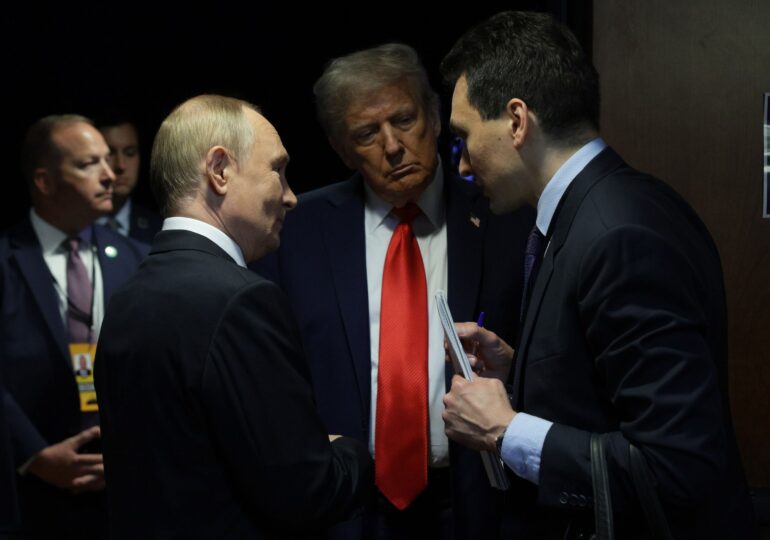Donald Trump has „no cards to play” in his relationship with Vladimir Putin and no reason to make any deals with him, writes journalist and historian Anne Applebaum in an opinion piece published in The Atlantic, analyzing the meeting in Alaska between the former American president and the Kremlin leader.
The premises are clear. President Donald Trump admonished President Volodymyr Zelensky in the Oval Office. He allowed the Pentagon, twice, to halt preprogrammed military deliveries to Ukraine. He promised that, once the current tranche of armaments is exhausted, there will be no more.
He has reduced or threatened to reduce American funds supporting independent Russian-language media and the opposition.
His administration is slowly and quietly easing sanctions against Russia, ending "basic sanctions and export control measures that had maintained and amplified American pressure," according to a Senate minority report.
"Every month spent by him in the White House without action has strengthened Putin's hand, weakened ours, and undermined Ukraine's efforts to end the war," wrote Senators Jeanne Shaheen and Elizabeth Warren in a joint statement.
Applebaum notes that many of these changes have gone almost unnoticed in the United States, but they are well known in Russia.
The Trump administration's attacks on Zelensky, on Europeans, and on Voice of America have been celebrated on Russian television.
Of course, Vladimir Putin is aware of the gradual lifting of sanctions. As a result, says Applebaum, the Kremlin leader has made a clear calculation: Trump, "to use the language he himself threw at Zelensky, has no cards to play."
Trump claims he wants to end the war in Ukraine and sometimes even expresses frustration that Putin is not doing the same. But if the US is not willing to use economic, military, or political tools to support Ukraine, if Trump does not exert any diplomatic pressure on Putin and does not impose new sanctions on Russian resources, then his desire to be perceived as a "peacemaker" can be easily ignored.
It is not surprising that all negotiation deadlines imposed by Trump on Russia have passed without effect and that the invitation to Anchorage, Alaska, has not yielded any results.
About Friday's meeting between Trump and Putin in Alaska, there is not much to say, notes Anne Applebaum, except to observe the "interplay between tragedy and farce."
It was embarrassing for Americans to host on their soil a notorious war criminal wanted internationally.
It was humiliating to see an American president behaving "like a happy puppy" in front of the dictator of a much poorer and less important country, treating him as a superior.
It is painful to imagine, the author writes, how poorly Trump's diplomatic envoy, Steve Witkoff, understood his last meeting with Putin in Moscow if he thought the Anchorage summit would be a success.
Even more worrying is that Trump now claims he does not want to push for a ceasefire, but for peace negotiations - a formula that actually gives Putin time to continue killing Ukrainians.
And Russian reports on the meeting have focused on economic cooperation. "The Russian-American partnership in business and investments has huge potential," Putin declared.
Anne Applebaum also notes that many Ukrainians, Europeans, and, of course, Americans, breathed a sigh of relief that Trump did not announce anything more serious - he did not demand Ukraine's surrender or the ceding of territories. "But this is an extremely low bar," she says.
To understand Anchorage, the author adds, we must not view it as the beginning of something new, but as the culmination of a longer process: "As the US dismantles its foreign policy tools, as this administration fires people who know how to use them, our ability to act with agility will disappear."
"America has no cards to play because we have given them to others," concludes Applebaum.
If we ever want to regain them, we must fight for them: "to arm Ukraine, to expand sanctions, to stop the deadly swarms of drones, to cripple the Russian economy, and to win the war. Only then will there be peace."

